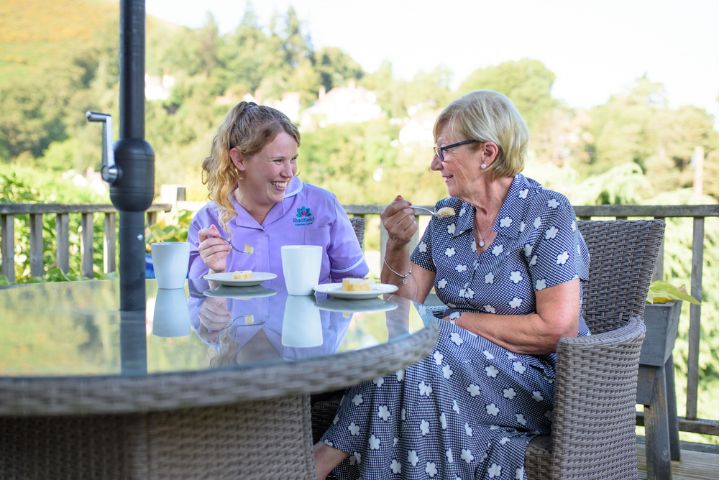The role of the home care worker has never been so vital in our communities
16 April 2020
Written byOwain Farrington

National Office
Please enter the office location/term above to receive results for your closest office as well as information matches
Social care has not been very well understood by many, but it has always been a key part of the overall world of care and health. Now more than ever, it has a vital part to play in supporting whole communities in the fight against Covid-19 and keeping many different groups of vulnerable people safe.
Samuel Holmes, owner and director of Radfield Home Care Bexhill, Hastings and Battle comments:
“One of the most striking images we’ve all seen in the past few weeks has been of a frail, elderly man surrounded by row upon row of empty supermarket shelves. It brought home, if nothing else, how much we depend on whole groups of workers we don’t often think about, such as the drivers who bring food to our stores and the supermarket staff who stack the shelves.”
“And, it’s not just the drivers and the supermarket staff. We all know that doctors and nurses provide a vital function, but if you’d never before noticed the health care assistants, cleaners, secretaries, pharmacists and administrators who keep a hospital functioning, then the Covid-19 crisis has shown us just how essential those people are.”
“The government’s list of sectors employing key workers was eye-opening – healthcare and education, of course, but also food production, local government, transport, public safety, utilities, financial services and social care. The people who keep your water supply flowing, or make sure the phone network is working, or who empty the bins, are all performing a vital service. Not all these jobs are regarded as highly-skilled – and many certainly aren’t highly- paid – but we couldn’t manage without them.”
“Amongst the most unsung heroes are the care workers who look after older and frail people in residential care or their own home. There are 1.6m people over the age of 85 in the UK, and that number is growing all the time. Approximately 850,000 people have dementia – predicted to grow to more than one million by 2025.”
“This population requires specialist care, sometimes round the clock. They are looked after by an army of 1.3m care workers, quietly performing a vital role. Without them, many older people would be unable to look after themselves, and would be reliant on adult children giving up their own work to care for them.”
The home care assistant role has historically been seen as an unskilled job, with often a stigma attached to it. Home care providers are responsible for people’s lives, mobility, medication and diet, with home care assistants often managing catheters, stoma bags and a variety of mobility equipment. The role needs a strong character! The responsibilities are complex and require diligence, insight and attention to detail.
At the current time, when so many older and vulnerable people are self isolating and shielding from family, friends and loved ones, the role of the home care worker is more necessary than ever, with days, weeks and now even months passing by with only a visit from a care professional to look forward to. Their only lifeline in some instances!
Samuel comments,
“If the COVID-19 crisis has taught us anything, it’s that everyone in society plays their part, often unacknowledged, often unthanked. If one good thing comes out of this, maybe it’s that we all finally recognise how much we all owe to the hard work, skill and kindness of others.”
If you would like to find out more about the home care professional role with Radfield Home Care, visit our careers website. We would love to hear from you.
Get in touch with your local Radfield Home Care office today and find out more about the support we offer and the difference we can make.